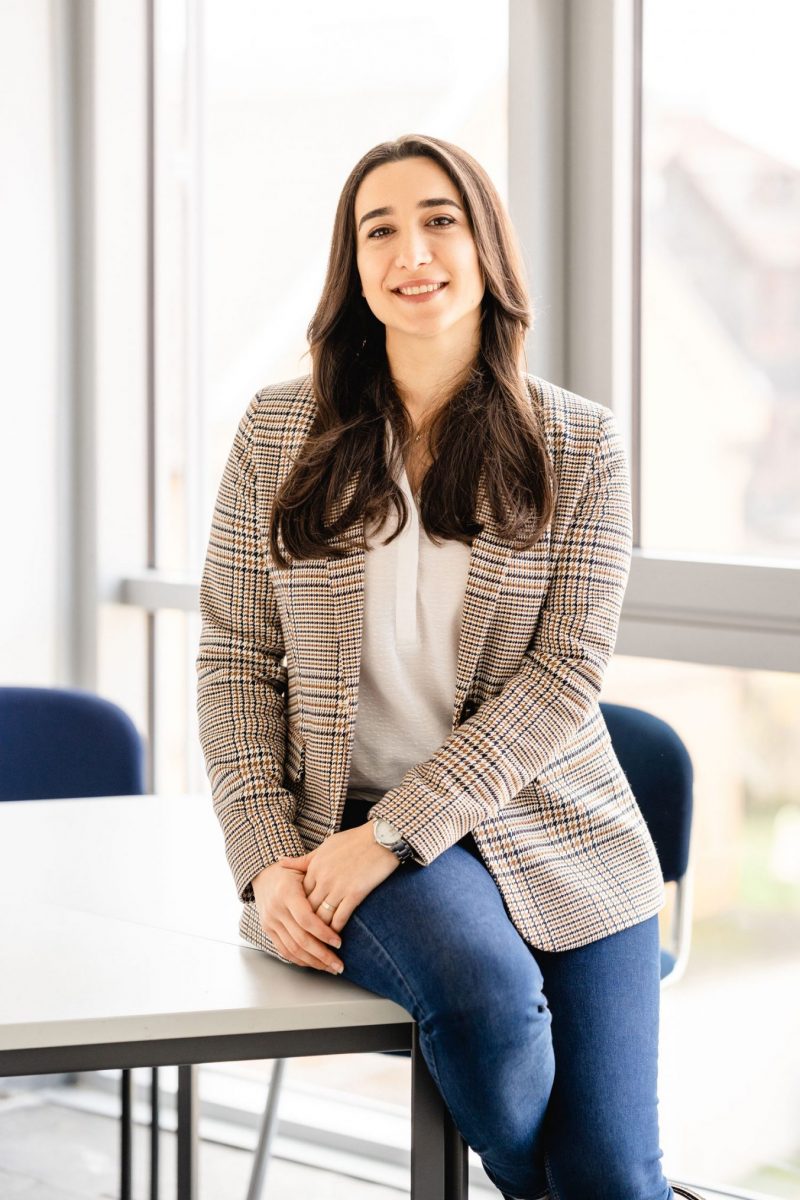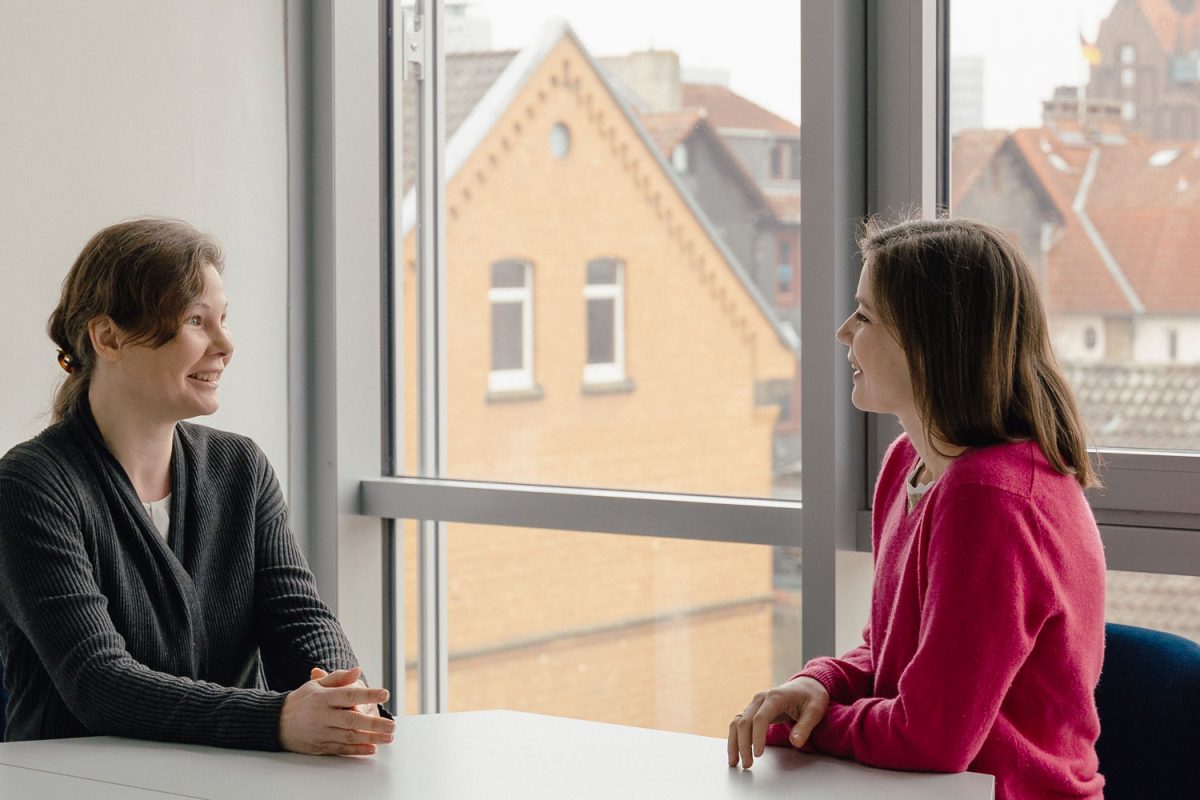Learning languages in tandem Extended offer for employees and students of TU Braunschweig
The principle of a language tandem is simple: two people with different mother tongues teach each other the other language. The idea behind it: The best way to learn a language is to speak it regularly. This is exactly the focus of the language tandem. TU staff members can now try this out in a new programme.
TU Braunschweig’s language tandem programme is open to all interested parties. External learners can also take part and receive a tandem certificate after successful completion. The programme has been very popular since 2014. Nese Yobas from the International House is responsible for organising the programme and knows the recipe for success: “Learning languages in tandem is simply fun. You get to know new people, learn more about the culture and history of another country and educate yourself at the same time,” she emphasises.
Strengthen internationality and intercultural competences

Nese Yobas is excited to welcome many interested TU staff members in the language tandem programme. Photo: Simone Fürst/TU Braunschweig
From the summer semester 2023, the successful language tandem programme will be expanded: TU employees can now register for a programme that is aimed exclusively at employees, teachers, postdocs and doctoral students of TU Braunschweig. “We want to contribute to the stronger internationalisation of TU Braunschweig and give employees another opportunity for intercultural exchange,” says Yobas. She adds that a common experience base and a similar daily structure of the two tandem partners are also important factors for a successful tandem.
TU employees Mara Ruth Wesemüller and Danielle Zvengrowski have already tried out the staff tandem in the winter semester. From their point of view, it was a complete success: “I have developed a greater naturalness in speaking in English and find it great that you also get to know colleagues from other areas of the university at the same time,” says Wesemüller. For her, the tandem programme is preparation for an Erasmus staff stay at the University of Strathclyde in Scotland in May, but it is also important for her everyday work: “In our work in the Knowledge Transfer Team in the Transfer and Cooperation House, we have more and more contact with international partners. Therefore, I would like to improve my active language vocabulary and communicate confidently in English.”
The Tandem Programme as an active language break
Wesemüller’s language tandem partner Danielle Zvengrowski comes from the USA and has been an English teacher at the International House since 2020. She finds the language tandem particularly helpful in everyday life: “For me, it’s a very good way to learn German as an everyday language. In addition, a tandem unit can be perfectly accommodated in the lunch break – as an active language break, so to speak.” The two TU employees took advantage of the flexibility of the tandem programme and met either in cafés, in the office or online. The meetings lasted one hour each, with each language spoken for thirty minutes. The topics were very different: “For example, we showed each other the websites of our facilities or talked about email phrases. Sometimes we decided on the topic in advance of the meeting, but often we just started spontaneously,” Zvengrowski describes.

Danielle Zvengrowski (l.) and Mara Ruth Wesemüller have tried out the language tandem programme and are very pleased with the results. Photo: Simone Fürst/TU Braunschweig.
The Language Centre supports the tandem pairs by providing a framework within the programme: at least ten meetings of 60 minutes each are compulsory. The meetings must be written down in a short learning diary. After the third meeting, Nese Yobas has a short reflection session with the participants to review the goals and expectations of the tandem. There is also a closing event where all tandem pairs from the past two semesters can network and share experiences. “Employees who have successfully completed the tandem programme can also have three points credited towards the Certificate of Intercultural Competence,” explains Yobas. Mara Ruth Wesemüller and Danielle Zvengrowski draw a positive conclusion to their language exchange and can also imagine continuing the meetings after the official end of the tandem programme. “We really enjoy the Tandem and are very happy that a permanent offer for staff has been created. We recommend everyone to just give it a try,” Wesemüller motivates other TU members.
Students can now earn credit points
Not only for staff, but also for students, there are innovations in the Tandem programme from the summer semester onwards: In the Tandem+ programme, TU students can now receive one credit point for successful participation in a language tandem. The prerequisite is that the language partners meet at least ten times within a semester and document the meetings in a tandem portfolio.
